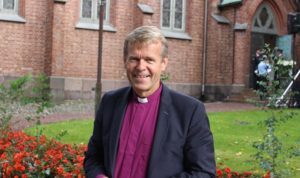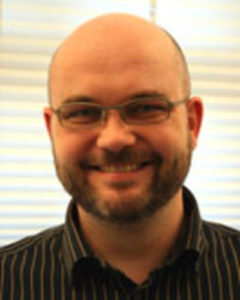or are they?
According to the United Nations World Happiness Report. It showed that without a doubt that Norway is the happiest country among the 156 nations that the report featured.
So how does one measure happiness? According to United Nations, there are six key variables which ensure happiness. These variables are life expectancy, GDP per citizen, the ability to access trustworthy people in times of trouble, absence of corruption in society, experiences of generosity, and an individual’s freedom to make his or her own choice.
But happiness is not easy to measure. The United Nations freely admits this. And the World Happiness Report runs into a few problems when you match it with other types of statistics. The paradox of the Danish is a good example. They are at the top of the report when it comes to happiness, but they also lay claim to being Europe’s second highest users of medication against depression next to Iceland.
Fruit, Not Goal
Perhaps we should look to other places when we are chasing after happiness? Maybe the United Nation’s definition of happiness stretches us to seek after something to live for?
“Both Norway and Denmark need to learn from the North’s most important and known figures: Søren Kierkegaard.” states Per Arne Dahl.
Per Arne Dahl, also the bishop of Tunsberg, is fascinated by the subjects of happiness and the meaning of life and has written books with the titles of Why Aren’t We Better When We Have It So Good? and Blessed Are The Simple Things.
“Kierkegaard said that, “If happiness is a goal in of itself than it ceases to be happy.” His point was that happiness should never be a goal in life, but that it is the fruit of something deeper” says Per Arne.
‘We should seek from a source, for a vine. We need to reach for something that is greater than ourselves. I believe if we seek our joy in the Father, in Christ, and in Holy Spirit that we can receive surprise experiences of happiness in life.”
Give and Take
The bishop has guided us onto a track where happiness is living for someone greater than ourselves. An interesting theme.
According to an article printed originally in the American magazine The Atlantic and then featured again in Aftenposten, a life of happiness and a life of purpose are not the same thing. Not for the average modern person, at least.
In a new study where researchers interviewed nearly 400 Americans between the ages of 18 and 78 on whether their lives were happy or meaningful, it was found that, “a happy life is commonly associated with being someone who takes, while a meaningful life is connected to giving.” Somewhat contradictory, yes?

This is truth was some modifications, Per Arne thinks. “I believe that Jesus knows better than any of us that happiness is not something we give ourselves, but rather it is something which is received as an unearned gift.”
“In John 10:10, Jesus talks about how he came in order for us to have life and life in abundance. In the original text, the word ‘abundance’ means flowing over and marked by others. I strongly suspect that the happiest people in the world are those who live to honor God and to serve others. This way happiness becomes a fruit of life and a good example of this is Mother Theresa. Every time she was present in public, she was shinning.”
Children Pulling Us Down
Lars Fredrik Svendsen, professor of philosophy at the University of Bergen, believes that it is easy for us to misunderstand what happiness is.
“When taking surveys on the subjects of happiness or well being, we have seen that adults with children come out worse than adults who do not have children” states Lars Fredrik. However, if you talk with the same people on what is truly important to them in their life, they are quick to attest that it is their children. This can mean that happiness understood as the subject of well being maybe should not steer our lives. We should be directed by something more meaning with substance.”
Meaning Of Life
Svendsen believes that the modern quest after happiness comes as a result of the conditions for finding meaning in life having been changed. The emergence of the focus on the individual has changed us, he thinks. “The individual has become a figure which is set in history with a mission: to define its own meaning of life.”
However, Svendsen believes that in reality, this mission is not so simple. “This goal is why we are almost in a panicked state over self realization.”
So how does one find their meaning in life?

“The first thing one needs to do is to get inside one’s own head and figure out what is truly important to you in life, what you care about” states Svendsen. “Then one should ask oneself if the things that you care about in life are actually worth caring about. If find out that you can actually devote your life to these things, then life does not have more meaning than that.”
Better, But Happier?
The United Nations tells us the we are the happiest country in the world. Congo is number 117 on their list. Unni Haugen, a missionary to the Congo for 46 years, from 1953 to 1999, is not so sure that this actually correlates with reality. Are we really happier here in Norway than in Congo?
“We have it much better here. But I have the impression that many people here in Norway are full of anxiety and are depressed. Down there the people have so much joy when they received even small things or were with their families. I believe that they are happier” says Unni.
It is interesting to hear from Unni if the concept of happiness has changed since she was young.
“Yes, I believe that it has” is her input. “It hasn’t been so carrier or performance oriented before. People were just happy to be with their family and to have a good time together.”
“There have been many things in my live that I have not been jubilant over. I have known sorrow and disappointment” says 84 year old Unni.
It is admirable how a woman like Unni has remained faithful to her call through all of these years. But has she been happy?
“Happiness is many things” she says. “But yes, I would say that I have. I remember that David Østby interviewed me one time when I was home for a vacation. He wondered how it would have been for me if I had not followed my call. I answered that I would have been unhappy.”
The Road Is Open
Per Arne Dahl believes that neither Norway nor Denmark need more happiness.
“But we do need more joy. And more meaning. And more solidarity as well as thankfulness” says Dahl. The bishop thinks that Jesus has buried the coins concerning happiness. He did not promise us an absence of sorrow or difficulties, but rather he promised to be with us.
“We are a long way from Paradise; we live a far east from Eden. But we can stretch ourselves towards heaven. The way back to happiness is closed, but the road going to heaven is as wide open as never before.”
Written by William Fuglset
Translated by Emily Huyck
 Sorthvit.com Take back what's beautiful!
Sorthvit.com Take back what's beautiful!




